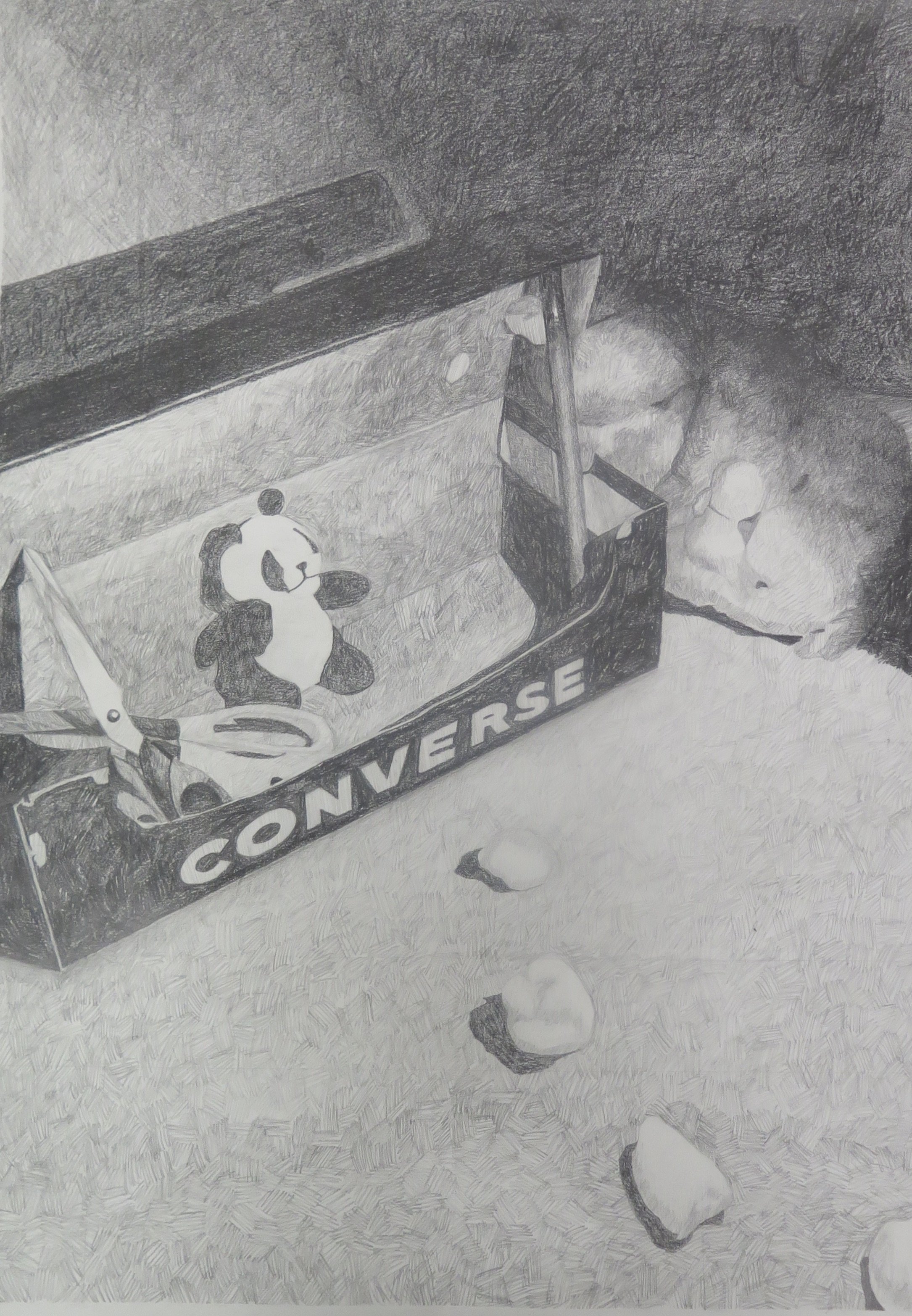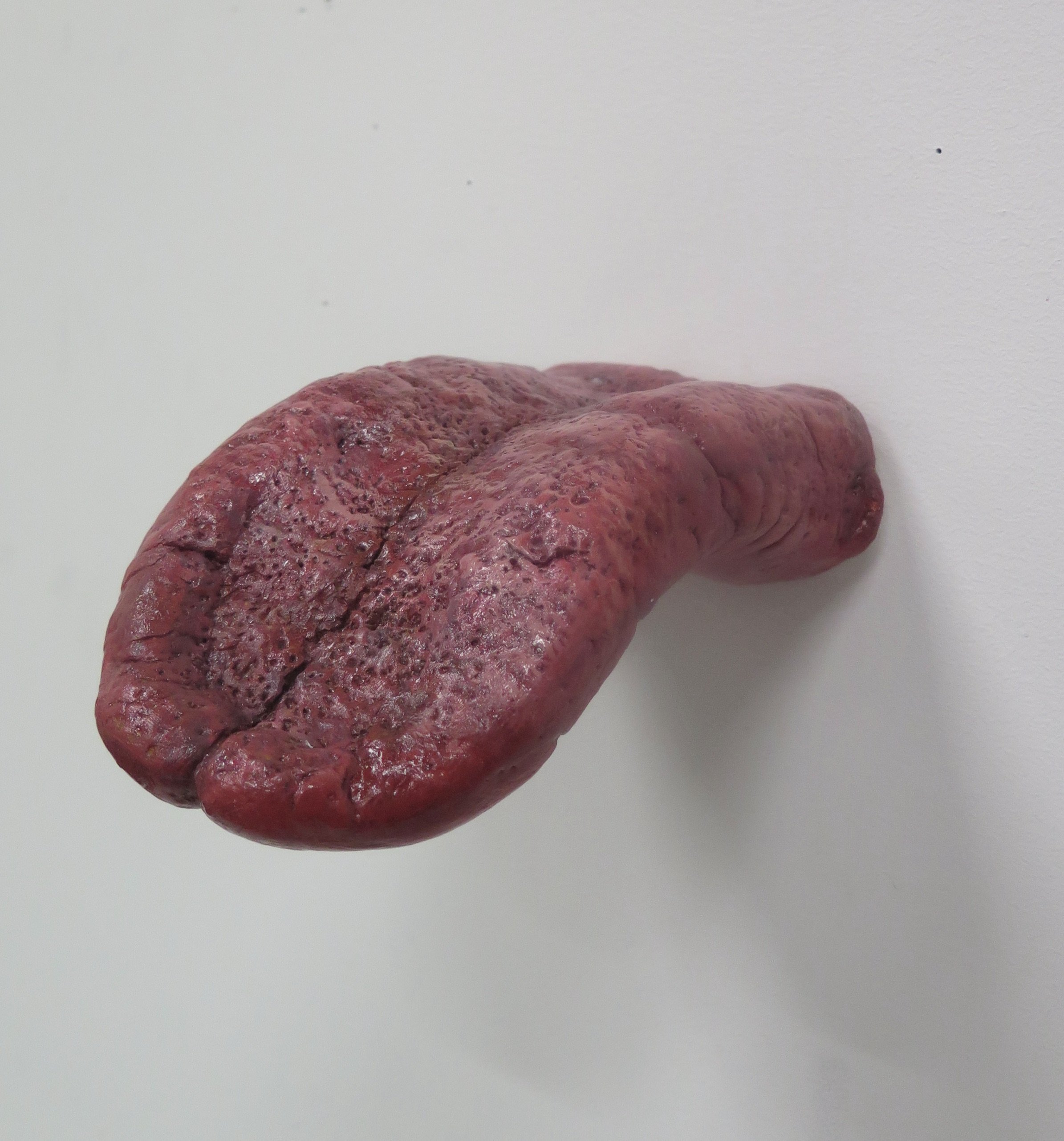Material Exploration
Core Visual Arts
Instructor Parvin Peivandi
Please make an interdisciplinary art that is inspired by the projects that we have done in class. These projects were textile, 2D (Drawing/Painting), 3D, and mixed media arts. Your art should show the material exploration and conversation between at least two mediums. For instance, you make a painting that has a woven part or you make a weaving that has a tapestry inspired by an abstract painting or geometric abstraction. Other examples: You make a drawing or sculpture, then you project an image or video on this work by borrowing a video projector from media centre. You can also make a drawing and cover an object with it or make a sculpture with your drawings. Experimentation with new materials or techniques is highly encouraged.
Developing Interdisciplinary vision and skills, Studying materials and material culture, Employing diverse techniques and materials in a new context, thinking about the cycle of production and consumption of the objects.
Invented Landscapes
FNDT 112 S031 Drawing Studio
Instructor Stephanie Buer
Using objects found around their living spaces, students were encouraged to create a diorama, or scene with the objects that told a story. Using this creative prompt as a means to begin exploring in more depth, principles of composition, and perspective to create an interesting and engaging piece of work dealing with storytelling and space. The concept is loosely inspired by the works of Lewis Chamberlain and John Brosio.
Wundermind/ Extending the Self
Interdisciplinary Core Foundation 165
Instructor Mimi Gellman
The task in this assignment was to create a sculptural head piece that honoured a favourite artist by doing an interpretation of an artist’s work that inspired them, as a head piece. The students were encouraged to explore any material and process in the making of their headpiece and to express their headpiece realistically or abstractly, metaphorically or symbolically. In creating their works, the class was asked to do preliminary concept drawings and to consider the colours, forms and structures of their chosen artist’s work, the qualities that they admired in their work, and what made their individual artist unique. The project was followed by a deep written reflection by each student on their process and the meaning that arose in creating their sculptural installations.
Personal Narrations in Ceramics
Ceramics Project
Instructor: Parvin Peivandi
Using different skills acquired in the ceramic class, make a ceramic art that speaks to your back ground culture, personal narrations, life, your family and your interest and passion. You need to use the mold making techniques to make a plaster mold, create multiples and make the final art. You need to design and decorate your ceramic art with patterns that you have made based on an inspiration of an ancient ceramic art.
Wood From Drawing Project
FNDT 165 Interdisciplinary Core
Instructor Henry Tsang
Choose an object from one of your Observational Drawings and create a wood sculpture based on it. This could be a building, a tree, a bush, a couch, an electrical pole with power lines, a flower, a cloud. It can be as accurate, abstract or distorted interpretation as you wish.
You can use any kind of wood, of any size, but it must be:- comprised of multiple wood pieces of which at least 2 are joined in some way(i.e., fastened together with glue, nails, screws).- freestanding (i.e., able to stand up by itself, not hung on a wall)
You can also add other materials and colour but the structural component, i.e., what holds it up, must be wood.
Portmanteau Casting Project
FNDT 164 Visual Art Core
Instructor Henry Tsang
A portmanteau is a linguistic blend of words, such as cyborg (cybernetic + organism), skyscraper (sky + scraper), and Brexit (Britain + exit), whereas a compound is a combination of two words, like karaoke (karappo + okesutura, or empty + orchestra in English) and skyscraper (sky + scraper). Choose an existing portmanteau, or devise one of your own, then make a sculpture of it by casting it in plaster or another material of your choice.
Printmaking
Foundation 151 Printmaking
Instructor Mark Johnsen
This selection of printed works was created in response to themes of transformation, iteration, self-representation, opposing forces, and the very mediums in which they were produced. Over the Spring of 2022, students worked in the mediums of relief, intaglio, monotype, book media, and combined techniques to explore the unlimited potential of printed matter.










